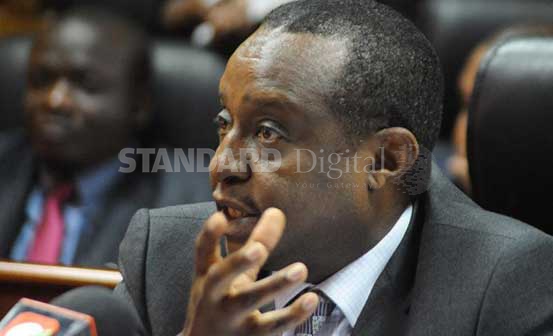×
The Standard e-Paper
Smart Minds Choose Us

Treasury’s plan to tap Sh22.4 billion through the issuance of long-term infrastructure bond will raise Kenya’s domestic debt to over Sh2.5 trillion.
The latest bond issue comes months after the poor performance of an earlier infrastructure bond, which was under-subscribed at 80.787 per cent. “The acceptance rate was encouraging and stands at 55.177 per cent compared to the Infrastructure bond issued in January,” Standard Investment Bank said.